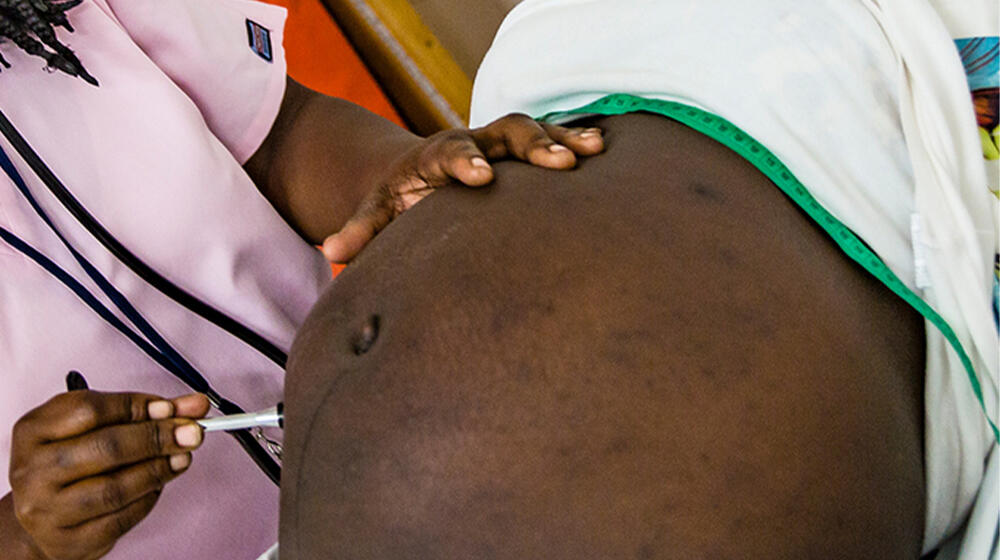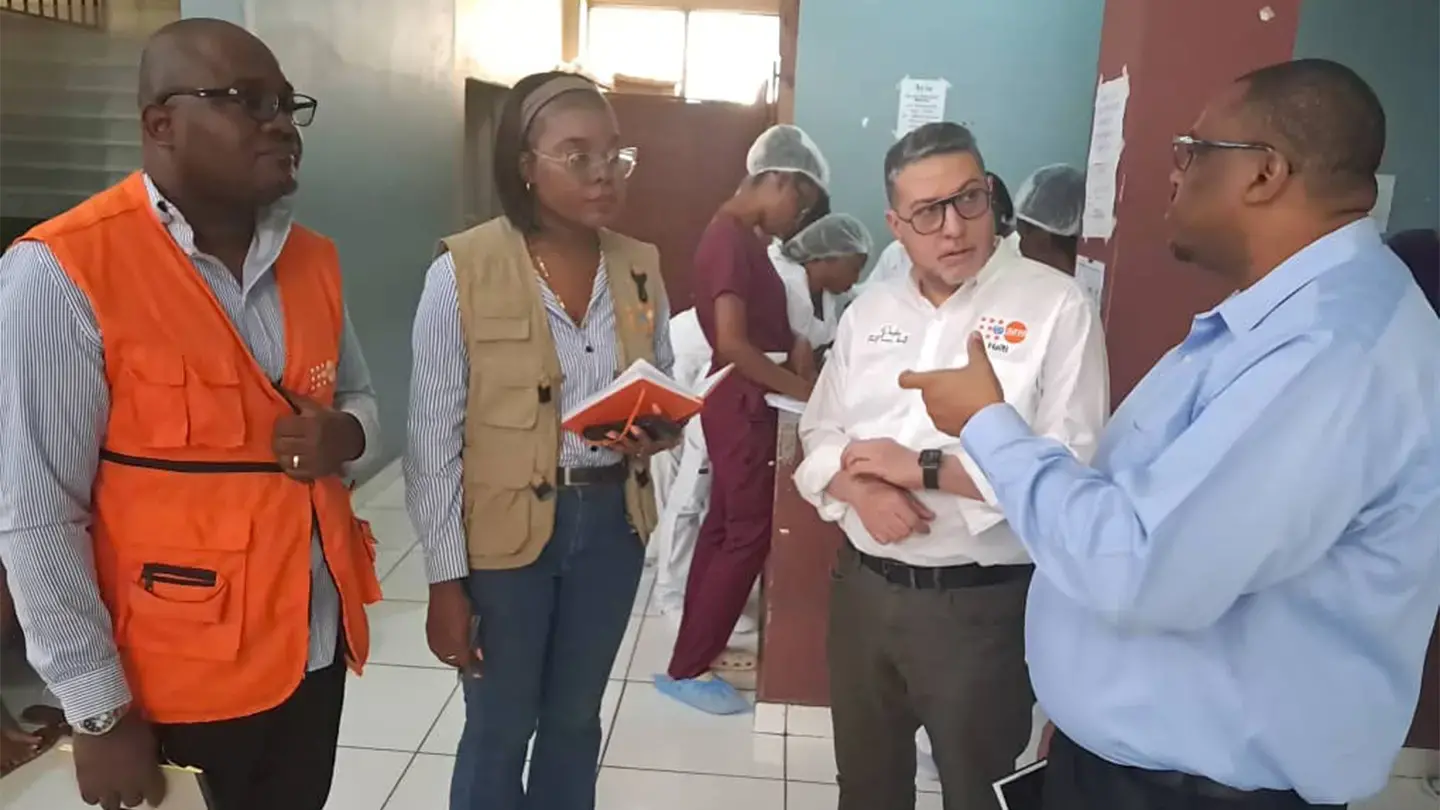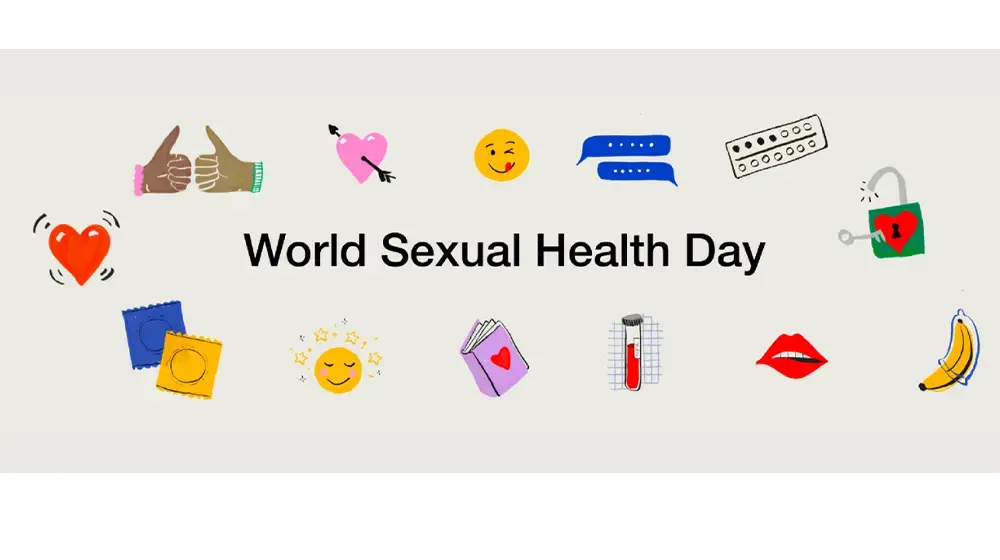Port-au-Prince, May 21, 2023 --- Haiti is fighting to reduce obstetric fistula. It is for this reason that it celebrates the International Day for the Elimination of Obstetric Fistula on May 23, placed this year around the theme “20 years later - Progress, but not enough! Act now to end fistula by 2030,” explains the Director of the Family Health Department (DSF) at the Ministry of Public Health and Population (MSPP), Dr Reynold Grand’Pierre.
What is obstetric fistula?
“Obstetric fistula is a complication that happens in women. It often occurs after childbirth or sometimes after surgery which causes a communication between the vagina and the bladder (located in front of the vagina) or the rectum, which is located where the salt passes for elimination. If it is with the bladder, it is the urine which will flow through the vagina. If it is with the rectum, it is the stools which will pass through the vagina. It is a very humiliating condition which contributes to causing the victim to close off, feeling unsociable. She is rejected by her family, by her partner. Consequence: she does not seek a solution (she does not go to the hospital). She condemns herself in this situation,” says Dr Grand’Pierre.
The situation in the world
Every day, around 800 women die from complications related to pregnancy or childbirth worldwide. For every woman who dies from causes related to maternity, it is estimated that at least 20 suffer from maternal morbidity, one of the most severe forms of which is obstetric fistula.
According to generally accepted estimates, 2 to 3.5 million women suffer from obstetric fistula in the developing world, and 50,000 to 100,000 new cases occur each year. Virtually extinct in the developed world, obstetric fistula continues to strike the poorest of the poor: women and girls living in some of the most resource-deprived regions of the world.
6 new cases per 1,000 women of childbearing age
In Haiti, the incidence of obstetric fistula is estimated at 6 new cases per 1,000 women of childbearing age, according to EMMUS VI, or nearly 18,985 cases of obstetric fistula in 2023. More than half of women living with obstetric fistula (52%) in Haiti would be under 21 years old when they had their first birth.
“We are taking advantage of this day to draw attention to the existence of obstetric fistula, clarify what it is and say what we are doing to prevent it and contribute to its eradication,” underlines the Head of the DSF.
Management of obstetric fistula is not available at all levels. Most often, it is at the level of university hospitals of which there are not many.
Prevent fistula
“To prevent fistula, we must have deliveries that take place in good conditions, that is to say with trained personnel and in appropriate institutions,” specifies Dr Grand’Pierre.
“If the staff is trained, they are aware of all the precautions to take during childbirth to prevent this bursting of the vagina, which will cause this hole in the membrane, either with the bladder or with the rectum", adds the Director of the DSF. As soon as we manage to increase the number of deliveries by qualified personnel in the institutions designed for this purpose, we will reduce the risks of complications.
The care
As we prevent fistula, we must provide answers to the people who suffer from it. Care is a delicate operation that requires trained personnel, equipment and appropriate institutions. “The Ministry of Public Health and Population is working to ensure that such institutions are increasingly available in the country in order to respond to this situation and relieve people,” says Dr Grand’Pierre. We must then make the person who suffered from fistula regain their confidence, their dignity and reintegrate them into society.
Travel together
The MSPP works in this area with a set of local and international partners. Among these partners is the United Nations Population Agency, which makes this theme a priority within the framework of its mandate. “It was with UNFPA that we did a lot of studies to get an idea of the situation,” notes the Director of the DSF.
UNFPA and other local partners, such as the Haitian Society of Obstetrics and Gynecology (SHOG), which brings together the country's various gynecologists, are developing expertise in obstetric fistula surgery to lead to people's healing. With these partners, we have made efforts. But the work remains immense. “Let’s travel together to achieve the elimination of obstetric fistula,” adds Dr Grand’Pierre. For someone who suffers from fistula, their life is not over, corrections are possible.
Commitment to end fistula
In 2018, UN member states adopted a UN General Assembly resolution, calling for an end to fistula by 2030. UN member states are calling on states to invest more in strengthening of health systems and to redouble efforts to achieve the internationally agreed objective, through the availability of family planning services, the improvement of maternal health both in terms of access and in terms of the quality of emergency obstetric and neonatal care, and the surgical and psychosocial treatment of obstetric fistula.
Ending fistula by 2030 requires political commitment, additional resources and investment, as well as strengthened collaboration between governments, communities, development partners and civil society.
UNFPA leads the Global Campaign to End Fistula in collaboration with nearly 100 partner agencies at global, national and community levels. The campaign is effective in more than 55 countries in Africa, Asia, the Arab region, Latin America and the Caribbean. This campaign focuses on four key “pillars”: prevention, treatment, social reintegration, rehabilitation and advocacy.
Text: Vario Serant
Filming: Michaël Isaac Junior Ambroise




